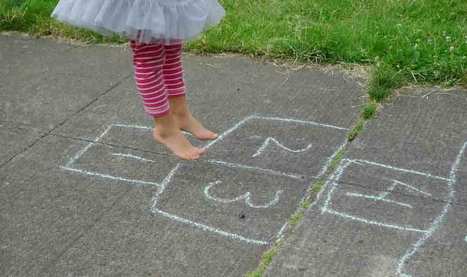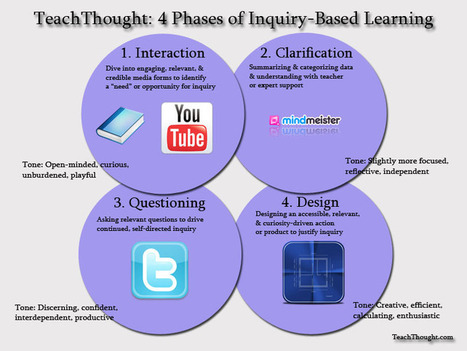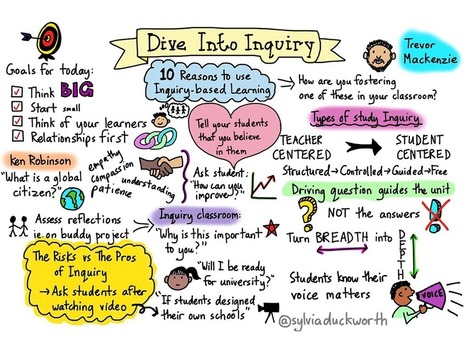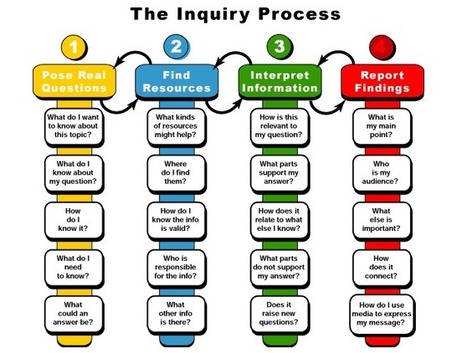Transforming teaching practices is a long, slow road. But increasingly schools and teachers experiencing success are sharing their ideas online and in-person. Science Leadership Academy opened as a public magnet school almost ten years ago in Philadelphia. The educators that make up the school community have spent nearly half that time sharing best practices through a school-run conference each year and more recently by opening a second school in Philadelphia. Diana Laufenberg was one of the first SLA teachers and has gone on to help foster inquiry at schools around the country, most recently by starting the non-profit Inquiry Schools.
It takes time to build up a strong inquiry-based teaching practice, to learn how to direct student questions with other questions, and to get comfortable in a guiding role. But when Laufenberg talks about what it takes, she makes it sound easy. We've broken her advice down into digestible tips for anyone ready to jump in and try for themselves.
Research and publish the best content.
Get Started for FREE
Sign up with Facebook Sign up with X
I don't have a Facebook or a X account
Already have an account: Login
Professional learning in a glance (or two)!
Curated by
John Evans
 Your new post is loading... Your new post is loading...
 Your new post is loading... Your new post is loading...
|

Peg Gillard's curator insight,
October 27, 2013 9:51 PM
We are so far removed from inquiry based classrooms that curiosity is but a shadow. Students wait to be fed the learning, which isn't true learning if it is fed. True learning comes from asking our own questions and setting out on a quest to unravel the riddle we have created. 
Drora Arussy's curator insight,
October 28, 2013 4:10 PM
wonderful visual for the inquiry process - for educators and to share with students. |















